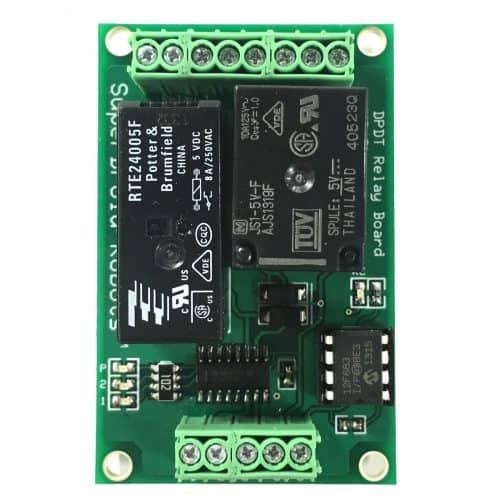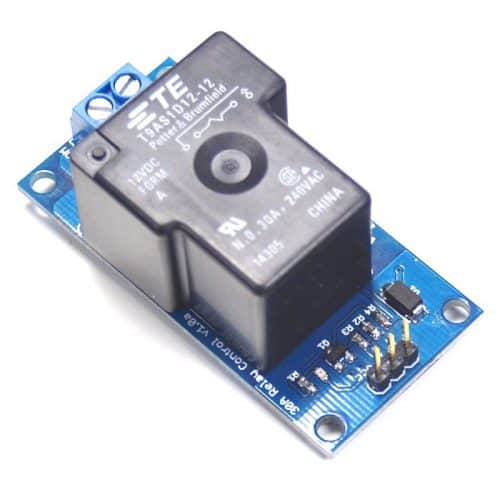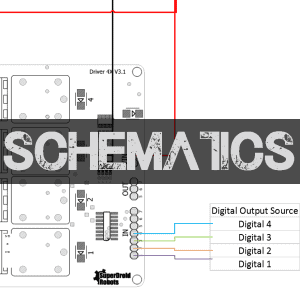What is a Relay?
A relay is a controllable switch that is used to open and/or close another circuit. There are multiple uses for relays in electrical work. Here at SuperDroid Robots, we use relays daily to help control robots.
Different Types of Relays
There are several types of relays each with their own applications and uses. Electromagnetic relays, solid state relays, and thermal relays are only a few types of relays used in robotics.
Electromagnetic relays are the most common relays in use for in small scale and home robotics. They can handle high current and are typically less expensive than solid state relays.

Coil Voltage
To power a relay you need to input a voltage across the coil. For convenience there are various schematic to the proper wiring of SuperDroid Robot PCB Relays. If you wish to use the Single Relay Board 10A, use the schematic provided in the document below to see how to correctly wire the board, you will need to choose the voltage you wish to work with in this case we will use 5V. The VCC or V will be +5VDC and the GND or G will be -5VDC, aka GND.
An example would be using a 5VDC relay but wanting to control a 24VDC Electric Motor. The relays coil voltage would be 5VDC and the COM would be 24VDC while the NO or NC, depending on operation, would be connected to one side of the motor and the other motor lead will be connected to the 24VDC GND.
Signals
Most relay boards will require a signal from a microcontroller or RC receiver to engage the relay even though the power on both ends is connected. This is done by either a Digital output pin from a controller like Arduino or from a RC Receiver. The signal in will typically be 5VDC, however, the microcontroller will not have enough power to drive a coil (too much current. Typically logic pins can only drive 20mA max). Because of this, a high current driver is required to pull the coil in. Coils typically require 50-200 mA.
Find Our High Current Drivers Here
RC Signals
A common request is to drive relays from an RC receiver. The RC signal from a receiver is not sufficient to directly drive a relay. Typically a small microcontroller is required to interpret the RC signal and drive the relay.
Find our RC Switches here
Schematics
If you would like to learn more about how to wire a relay, feel free to download the schematic below.




